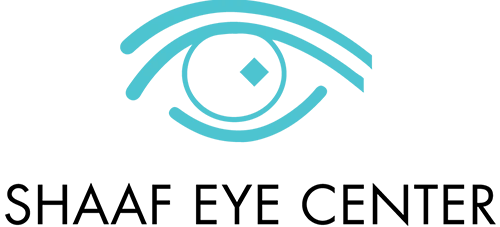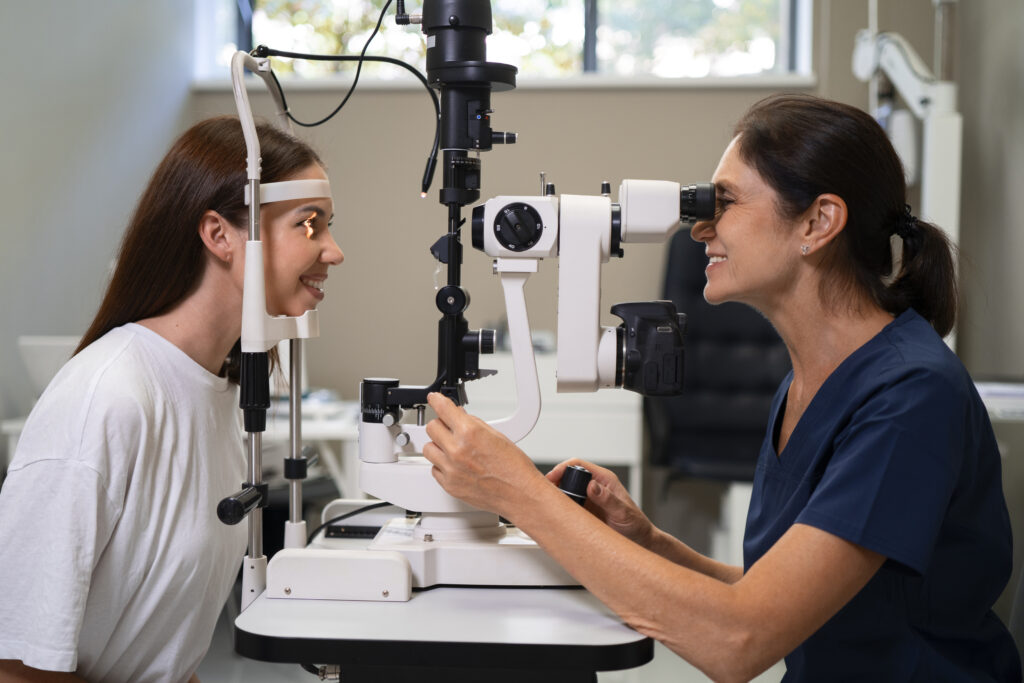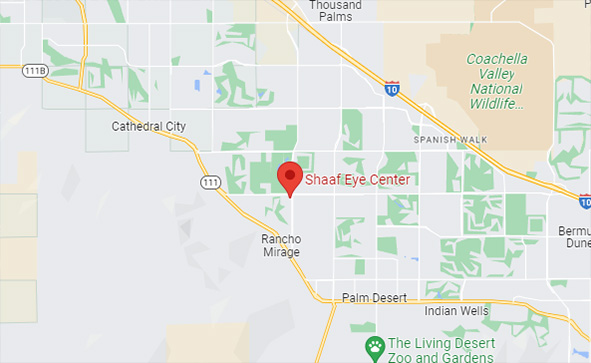
Your vision plays a vital role in how you experience the world—yet too often, eye health is overlooked until problems arise. At Shaaf Eye Center, we believe in the power of early detection and encourage all patients to take a proactive approach when it comes to caring for their eyes. While we don’t perform comprehensive eye exams in our facility, we strongly recommend visiting your local optometrist for a full evaluation of your eye health.
Early Detection = Lifelong Vision
Many serious eye conditions develop quietly, without noticeable symptoms until damage is already done. That’s why a routine eye exam can be one of the most important things you do for your overall well-being. With the right care at the right time, conditions like glaucoma, cataracts, macular degeneration, diabetic eye disease, and even signs of systemic issues such as high blood pressure or skin cancer can be detected early.
When caught early, these conditions can be managed more effectively, helping you avoid permanent vision loss or invasive procedures later on.
What Happens in a Comprehensive Eye Exam?
A comprehensive eye exam, typically performed by an optometrist, goes beyond checking if you need glasses. It gives a complete look at the health of your eyes, from front to back. This includes:
- Review of your medical and vision history
- Visual acuity testing (how clearly you can see)
- Refraction assessment (to find the right lens prescription)
- Eye movement and coordination tests
- Dilated eye exam to evaluate your retina and optic nerve
- Pressure testing for conditions like glaucoma
- Screening for early signs of allergies, skin cancer near the eyes, and other systemic conditions
This thorough check-up can uncover issues long before symptoms ever begin.
Who Should Get an Eye Exam?
The American Optometric Association recommends the following exam schedule:
- Infants and toddlers: First exam at 6 months old
- Children: At least once between ages 3–5 and again before starting school
- Adults (18–60): Every 1–2 years
- Seniors (60+): Annually, or more frequently based on your health
If you have diabetes, high blood pressure, or a family history of eye disease, your optometrist may recommend more frequent exams.

Don’t Wait for Symptoms
One of the biggest mistakes people make is waiting until they notice blurry vision or eye discomfort before seeing an eye doctor. By then, the condition may already be advanced. For instance:
- Glaucoma is often symptomless in its early stages but can cause permanent vision loss.
- Macular degeneration may go unnoticed until central vision is affected.
- Diabetic retinopathy develops silently and can damage the retina before you feel any changes.
- Even conditions like skin cancer around the eyelids or ocular allergies can first be detected during an eye exam.
Being proactive means protecting your sight before problems begin.
What Shaaf Eye Center Can Do for You
At Shaaf Eye Center, we’re passionate about helping our patients maintain healthy vision. While we don’t provide comprehensive eye exams at our clinic, we encourage you to schedule one with a trusted local optometrist. After your exam, if any conditions are detected that require medical or surgical eye care—such as cataracts, dry eye disease, glaucoma, or retinal concerns—we’re here to help you every step of the way.
We work hand-in-hand with local optometrists to ensure you receive a seamless continuum of care, from diagnosis to treatment.
A Lifetime of Healthy Vision Starts Today
At Shaaf Eye Center, we are committed to preserving your vision with advanced eye care and patient-first service. While we encourage you to schedule a comprehensive eye exam with your local optometrist, our expert team is here for any follow-up specialty care you may need—from cataracts and dry eye to glaucoma and more.
We proudly serve patients from Palm Desert, Rancho Mirage, Indian Wells, La Quinta, Indio, Cathedral City, and surrounding Coachella Valley communities. If your optometrist refers you for additional care, know that you’re in trusted hands at Shaaf Eye Center.
Be proactive—start with your eye exam today, and let us support you in keeping your vision sharp for years to come.






